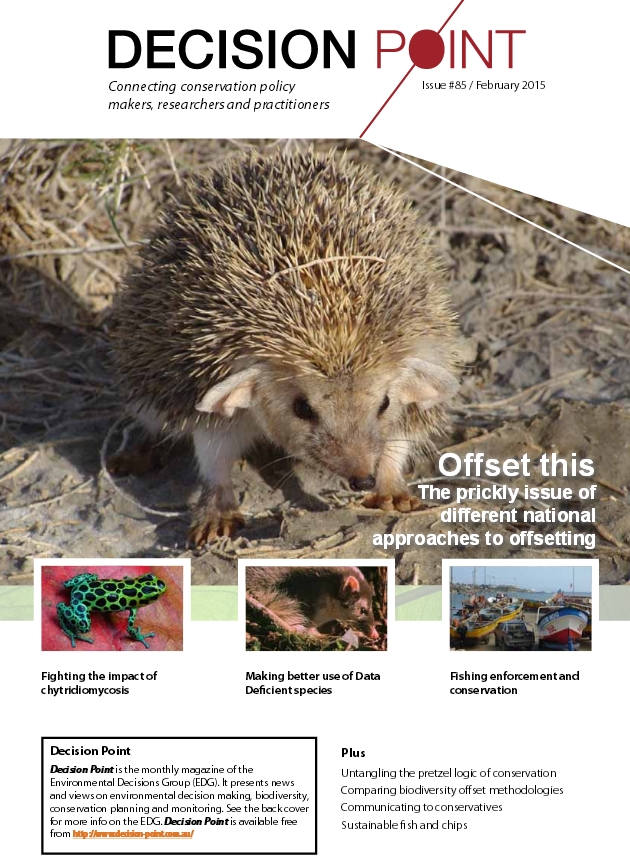 Joe Bull has published a new paper entitled “Comparing biodiversity offset methodologies. Divergence in securing ‘no net loss’” in Decision Point (No 85, February 2015). You can read the full article on the Journal website (open access). For more information see also some of the author’s conclusions below.
Joe Bull has published a new paper entitled “Comparing biodiversity offset methodologies. Divergence in securing ‘no net loss’” in Decision Point (No 85, February 2015). You can read the full article on the Journal website (open access). For more information see also some of the author’s conclusions below.
The consequences of divergence
All of these reasons for the divergence in outcomes link back ultimately to the philosophy behind offsetting, and how this varies between different jurisdictions. Whilst some societies might allow out-of-kind offsetting for practical reasons, others might simply deem it inappropriate or even potentially immoral; part of the reason for the recent fuss about offsetting in the UK media.
Alternatively, some social or institutional contexts might favour a more prescriptive approach (I get the impression from colleagues there that this would be the case in Uzbekistan), whereas others value the freedom to interpret policy individually.
In any case, the findings highlight that the method used to quantify losses and gains strongly influences the biodiversity outcomes of offsetting, which is interesting in itself. In turn, this may imply that offsets generated using different methodologies are not directly transferable between jurisdictions. The latter conclusion is not purely academic, as there have been mumblings for some time now about the potential for trans-jurisdictional (eg, international) biodiversity offset credit trades.
